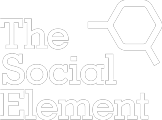If you, like most innovative brands on social media, recognise the strategic imperative of social customer care and community management on social, you will be considering the best way to bring efficiency and value to your brand’s approach. You’ll also probably be evaluating what is the right model to do so within budget. The good news is that, if you’re in this position, you’re probably ahead of a lot of the field. Surprisingly there are still many brands that simply don’t reply to customers on social, as Jo Van Den Driessche talked about recently on our blog.
Do you choose to build an in-house team or hire an agency to manage the service for you? Both models have advantages and challenges, which you should weigh up carefully to do the right thing for you. Here are some of the things to consider.
What’s your in-house knowledge?
How much knowledge of processes and best practice in social customer care and community management do you have within your talent pool? If the answer is not much, consider starting with agency help, and think about transition later when you have more experience in the team.
Volume response rate
How many queries are you facing on a daily basis, and what time of day do they land? These data points largely affect an in-house team’s ability to answer customers promptly. Customers on social expect a response quickly – only brands that respond to 90% of messages within 15 minutes get Facebook’s ‘very responsive to messages’ badge, and responding within an hour maximum is generally considered good practice. A small in-house team will be able to be responsive to low volumes in office hours. But out-of-hours activity and volume usually makes an agency model attractive. An agency can resource a team with more depth to ensure shift coverage 24/7 if needed, as well as covering annual leave and sick days that would impact a small in-house team.
Is your social activity a campaign rollercoaster?
If you’re a brand that’s quiet in the off-campaign season but needs to scale quickly to meet the demands of the next amazing creative campaign, then an in-house team may be inefficient. A responsive agency model can match your required scale, when you need it and avoid twiddling thumbs and bored employees.
Brand & market complexity
Multiple brands, across multiple markets, different tones of voice can lead to duplication of effort for in-house teams. This is where an agency can deliver significant cost savings, as well as a consistency in tone with centrally managed and trained teams, but local languages and activation. (See our guide to managing complex social media campaigns for more information on this.)
Measurement & Performance
Consider carefully the KPIs for performance and who’s monitoring quality. In-house teams should be supported by senior management to push performance, and agency teams that collaborate with the brand team for improvement on a regular basis are kept honest and performing well.
Innovation & Evolution
In-house teams should invest in and develop close relationships with the social media platforms in order to stay on top of tech and algorithm changes, and constantly innovate to keep ahead of the competition. This is bread and butter to a specialist agency, which as well as sharing knowledge across teams can leverage its knowledge from across different brands and markets to drive innovation. Brands working with agencies should make sure their contractual agreements include time set aside to using this knowledge to shape and challenge the brand’s strategic plans.
Talent management
Finally, think about talent management. How big a team do you need to manage social media? The bigger the team required, the larger the recruitment, training and retention/development program needed to build and keep a team that outperforms the competition.
If you’ve managed to get to the bottom of the list, you probably realise by now that there are many factors to put into your equation… and have probably thought of a few obvious factors that I’ve missed (please do reach out and let me know what you think!) – every brand is unique, and the solution should be too.
It’s worth tapping into your network of social and community leads working for other brands to see what perspectives they can bring to the decision. You can also get in touch with The Social Element team to talk through your specific situation and get our specialist advice.
–
Photo by Mimi Thian on Unsplash






Leave a Reply